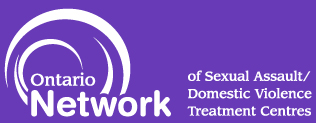
Staying Safe on the Internet
If you need to leave this site quickly, please click here.
There is no guarantee your internet history is completely untraceable. However, there are steps you can take to increase your privacy.
While the safest way to find information on the internet is by using a safe device, such as a friend's or a publicly accessible computer, this is not always possible. If you are worried about someone tracking your movements online, we have a few precautions you can do to reduce the risk of being tracked.
Internet/Browser History
Internet browsers track what sites you've visited and what you've looked at. A list is then left on your computer and can be accessed by others who use the device.
Click here to find out how to clear your internet history according to your preferred internet browser.
Clear your Cache
Your cache is where your computer stores copies of any files you may have recently looked at from within your browser. This is different than your internet history. Different internet browsers have a different set of rules to clear their cache.
Click here to find out how to clear your cache according to your preferred browser.
View InPrivate or Incognito Mode
Most internet browsers offer InPrivate or Incognito viewing mode. This offers a way of visiting web pages without being tracked and keeps your session private from other users on the same device. Some can erase traces of files being downloaded (they will remain on your device) and some offer tracking protection.
Click here to figure out how to initiate a private mode and what features your preferred internet browser has.
Email Safety
-
Change your password often. Choose a password only you would be able to guess. Do not use obvious words, numbers, or phrases
- Delete any outgoing and incoming emails
- If you receive threatening or harassing messages, print them as evidence of criminal activity
Social Media Safety
- Create strong passwords and change them often. Don't save them in your web browser for convenience
- Be selective with friend requests. If you don't know who is sending the request, don't accept it
- Avoid clicking on suspicious links
- Social media accounts are susceptible to hackers. Language or content that does not look like or sound like something a friend would post is an indicator their account may be hacked.
- Do not share sensitive or personal information online, such as your full name, address, telephone number, bank information, etc. Also, be conscious of the photos you post as they may give away your location
- Do not open messages from unknown accounts
- Familiarize yourself with the settings of your social media channels and their privacy settings, such as visibility and blocking features
- Log out of your accounts when you are done using them